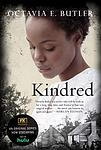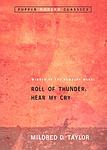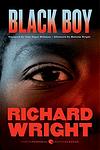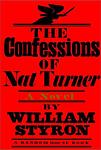The Greatest "African American" Books of All Time
Click to learn how this list is calculated.
This list represents a comprehensive and trusted collection of the greatest books. Developed through a specialized algorithm, it brings together 284 'best of' book lists to form a definitive guide to the world's most acclaimed books. For those interested in how these books are chosen, additional details can be found on the rankings page.
Genres
The category of "African American" books refers to literature written by authors of African descent who have lived or currently live in the United States. These books often explore themes of race, identity, and the African American experience, including topics such as slavery, civil rights, and contemporary issues facing the community. The genre includes a range of literary forms, including fiction, non-fiction, poetry, and memoirs, and offers a diverse and rich perspective on the African American experience.
Countries
Date Range
Reading Statistics
Click the button below to see how many of these books you've read!
Download
If you're interested in downloading this list as a CSV file for use in a spreadsheet application, you can easily do so by clicking the button below. Please note that to ensure a manageable file size and faster download, the CSV will include details for only the first 500 books.
Download-
1. To Kill a Mockingbird by Harper Lee
Set in the racially charged South during the Depression, the novel follows a young girl and her older brother as they navigate their small town's societal norms and prejudices. Their father, a lawyer, is appointed to defend a black man falsely accused of raping a white woman, forcing the children to confront the harsh realities of racism and injustice. The story explores themes of morality, innocence, and the loss of innocence through the eyes of the young protagonists.
-
2. Invisible Man by Ralph Ellison
The novel is a poignant exploration of a young African-American man's journey through life, where he grapples with issues of race, identity, and individuality in mid-20th-century America. The protagonist, who remains unnamed throughout the story, considers himself socially invisible due to his race. The narrative follows his experiences from the South to the North, from being a student to a worker, and his involvement in the Brotherhood, a political organization. The book is a profound critique of societal norms and racial prejudice, highlighting the protagonist's struggle to assert his identity in a world that refuses to see him.
-
3. Beloved by Toni Morrison
This novel tells the story of a former African-American slave woman who, after escaping to Ohio, is haunted by the ghost of her deceased daughter. The protagonist is forced to confront her repressed memories and the horrific realities of her past, including the desperate act she committed to protect her children from a life of slavery. The narrative is a poignant exploration of the physical, emotional, and psychological scars inflicted by the institution of slavery, and the struggle for identity and self-acceptance in its aftermath.
-
4. Their Eyes Were Watching God by Zora Neale Hurston
This novel follows the life of Janie Crawford, a young African-American woman, in the early 20th century. She embarks on a journey through three marriages and self-discovery while challenging the societal norms of her time. The narrative explores her struggle for personal freedom, fulfillment, and identity against the backdrop of racism and gender expectations, ultimately emphasizing the importance of independence and personal growth.
-
5. The Color Purple by Alice Walker
Set in the early 20th century, the novel is an epistolary tale of a young African-American woman named Celie, living in the South. She faces constant abuse and hardship, first from her father and then from her husband. The story unfolds through her letters written to God and her sister Nettie, revealing her emotional journey from oppression to self-discovery and independence, aided by her relationships with strong women around her. The narrative explores themes of racism, sexism, domestic violence, and the power of sisterhood and love.
-
6. Native Son by Richard Wright
This novel tells the story of Bigger Thomas, a young African-American man living in Chicago's South Side during the 1930s. Bigger's life takes a tragic turn when he accidentally kills a young white woman. The incident leads to his arrest and trial, revealing the deep-seated racial prejudices and injustices prevalent in American society at the time. The narrative explores themes of poverty, systemic racism, fear, and the effects of oppression.
-
7. Song of Solomon by Toni Morrison
The novel explores the life of an African-American man, Macon "Milkman" Dead III, from birth to adulthood. Set against the backdrop of racial tension in the mid-20th century United States, it delves into his journey of self-discovery and understanding his heritage. As Macon embarks on a literal and figurative journey south to reconnect with his roots, he encounters various characters that help him understand his family history and the power of community. The narrative is deeply rooted in African-American folklore and mythology, offering a profound commentary on identity, personal freedom, and the destructive power of racism.
-
8. The Autobiography of Malcolm X by Alex Haley
This book is an autobiography narrating the life of a renowned African-American activist. It delves into his transformation from a young man involved in criminal activities to becoming one of the most influential voices in the fight against racial inequality in America. The book provides a deep insight into his philosophies, his time in prison, conversion to Islam, his role in the Nation of Islam, his pilgrimage to Mecca, and his eventual split from the Nation. It also addresses his assassination, making it a powerful account of resilience, redemption, and personal growth.
-
9. I Know Why the Caged Bird Sings by Maya Angelou
This memoir recounts the early years of an African-American girl's life, focusing on her experiences with racism and trauma in the South during the 1930s. Despite the hardships she faces, including sexual abuse, she learns to rise above her circumstances through strength of character and a love of literature. Her journey from victim to survivor and her transformation into a young woman who respects herself is a testament to the human capacity to overcome adversity.
-
10. Uncle Tom's Cabin by Harriet Beecher Stowe
This renowned novel provides a harsh critique of American slavery through the story of Uncle Tom, a long-suffering black slave. The narrative follows Tom as he is sold and transported to the harsh South, encountering a variety of characters, both kind and cruel. The novel powerfully explores themes of faith, the immorality of slavery, and the concept of humanity, ultimately contributing to the abolitionist cause and leaving a significant impact on the American perception of slavery.
-
11. Go Tell it on the Mountain by James Baldwin
This novel explores the role of the Christian Church in the lives of African-Americans, both as a source of repression and moral hypocrisy and as a source of inspiration and community. It also, more broadly, examines the role of the Pentecostal Church in the African American experience. The narrative focuses on a fourteen-year-old boy's struggle to discover his identity amidst a family filled with secrets and a life marked by a religious community's strict moral code.
-
12. Giovanni's Room by James Baldwin
The novel explores themes of identity, sexuality, and societal norms in mid-20th century Paris. The protagonist, an American man, grapples with his homosexual identity while engaged to a woman. His life takes a turn when he becomes involved with an Italian bartender, leading to a tumultuous relationship filled with passion, guilt, and self-loathing. The story is a poignant examination of the human struggle for acceptance and the destructive consequences of denying one's true self.
-
13. The Bluest Eye by Toni Morrison
The novel is a poignant tale of an African American girl named Pecola Breedlove who grows up during the years following the Great Depression. Living in a society that values beauty in terms of light skin and blue eyes, Pecola develops an inferiority complex and wishes for blue eyes, believing that it would make her beautiful and loved. The story explores themes of racial self-loathing, the standards of beauty, and the dynamics of power and oppression.
-
14. Roots by Alex Haley
This groundbreaking historical novel follows several generations of an African American family, beginning with Kunta Kinte, a man captured in Gambia in the 18th century and sold into slavery in the United States. Through Kinte and his descendants, the narrative explores the brutal realities of slavery and its aftermath, the struggle for freedom and civil rights, and the perseverance of a family through immense hardship. The story is based on the author's own family history, making it a significant work in the exploration of African American heritage and identity.
-
15. The Souls of Black Folk by W. E. B. Du Bois
This seminal work is a collection of essays that explores the history and condition of African Americans at the turn of the 20th century. It delves into the issues of race, class, and the socio-economic realities faced by black people post-emancipation. The author employs a combination of history, sociology, and personal narrative to present a powerful critique of American society, highlighting the struggle for civil rights, the importance of black spirituals, and the concept of "double consciousness" - the idea of viewing oneself through the lens of a society that sees you as inferior.
-
16. Another Country by James Baldwin
"Another Country" is a profound exploration of racial, sexual, and creative issues in 1950s Manhattan. The story follows the lives of various characters, including a jazz drummer, a Southern white woman, and a black playwright, among others. As the narrative unfolds, it delves into their struggles with identity, prejudice, and interpersonal relationships, offering a raw and unflinching portrayal of America's social and cultural landscape during a time of intense change and conflict.
-
17. Passing by Nella Larsen
"Passing" is a novel about two light-skinned African-American women, Irene Redfield and Clare Kendry, who can 'pass' as white. Set during the Harlem Renaissance, the story explores the intricacies and challenges of racial identity in 1920s America. Clare, who has chosen to live as a white woman, married to a racist who is unaware of her true heritage, risks everything when she reconnects with her childhood friend Irene, causing both women to grapple with their identities and desires, leading to tragic consequences.
-
18. Kindred by Octavia E. Butler
"Kindred" is a gripping and thought-provoking novel that follows the life of Dana, a young African American woman living in the 1970s. Suddenly, she finds herself inexplicably transported back in time to the early 19th century, where she becomes entangled in the lives of her ancestors, who are enslaved on a plantation. As Dana navigates the brutal realities of slavery, she grapples with her own identity, the complexities of race, and the enduring legacy of the past. With its powerful storytelling and exploration of the connections between past and present, "Kindred" is a profound examination of history, race, and the enduring resilience of the human spirit.
-
19. Roll of Thunder, Hear My Cry by Mildred D. Taylor
Set in Mississippi during the Great Depression, this novel follows the life of a young African American girl and her family who are struggling to maintain their integrity, pride, and independence in the face of racism and social injustice. The family owns a piece of land which provides them some protection from the harsh realities of racial discrimination. The story is a poignant exploration of how they navigate through a prejudiced society, face social and economic challenges, and fight to keep their land.
-
20. Sula by Toni Morrison
The novel is a poignant tale of two African American girls, Nel and Sula, growing up in the racially segregated town of Medallion, Ohio. The narrative explores their friendship, personal struggles, and the societal expectations imposed on them. Sula, the more rebellious of the two, leaves town to live a life of freedom and independence, while Nel chooses to conform to societal norms, marrying and raising a family. When Sula returns, their friendship is tested due to a betrayal, and the town labels Sula as evil. The book delves into themes of friendship, betrayal, individuality, and the societal roles of women.
-
21. Black Boy by Richard Wright
"Black Boy" is an autobiographical account of a young African-American boy growing up in the South during the early 20th century. The book explores his experiences with extreme poverty, racism, and his struggle to find his place in a society that marginalizes and devalues him. The protagonist's desire for self-expression and understanding leads him to a love of literature and writing, providing him with a means to challenge and critique the oppressive social structures around him.
-
22. The Confessions of Nat Turner by William Styron
"The Confessions of Nat Turner" is a fictionalized account of a historical event, the 1831 Virginia slave uprising led by Nat Turner. The book is presented as a first-person narrative from Turner's perspective, exploring his life as a slave, his religious visions, and the violent rebellion he led against white slaveholders. The novel delves into the complexities of slavery, morality, and rebellion, while also examining the psychological trauma inflicted by the institution of slavery.
-
23. The Known World by Edward P. Jones
"The Known World" is a historical novel set in antebellum Virginia, exploring the complex relationships between slaves, free blacks, and whites. The story revolves around a black man who becomes a slave owner, his wife, and their slaves. It provides a unique perspective on the moral complexities and personal consequences of slavery, while also examining the intricate social hierarchy of the time. The narrative is filled with richly drawn characters, each with their own stories and struggles, offering a vivid portrayal of a little-known aspect of American history.
-
24. Cane by Jean Toomer
"Cane" is a collection of vignettes and poems that depict the life of African-Americans in both the rural South and urban North during the early 20th century. The narrative explores themes of racial identity, cultural heritage, and the African-American experience, blending elements of fiction, poetry, and drama. The work is divided into three parts, with the first and third focusing on life in the rural South and the second part on life in the urban North.
-
25. Mumbo Jumbo by Ishmael Reed
"Mumbo Jumbo" is a satirical and unconventional novel that explores the cultural and political landscape of 1920s America. The narrative centers around an ancient virus known as "Jes Grew" which is spreading rapidly, causing people to dance, feel joy and lose their inhibitions. The protagonist, an African-American detective, is tasked with finding the text that supposedly contains the cure for this "disease". The book uses this premise to critique Western civilization and its attempts to suppress African and other non-European cultures.
Reading Statistics
Click the button below to see how many of these books you've read!
Download
If you're interested in downloading this list as a CSV file for use in a spreadsheet application, you can easily do so by clicking the button below. Please note that to ensure a manageable file size and faster download, the CSV will include details for only the first 500 books.
Download























